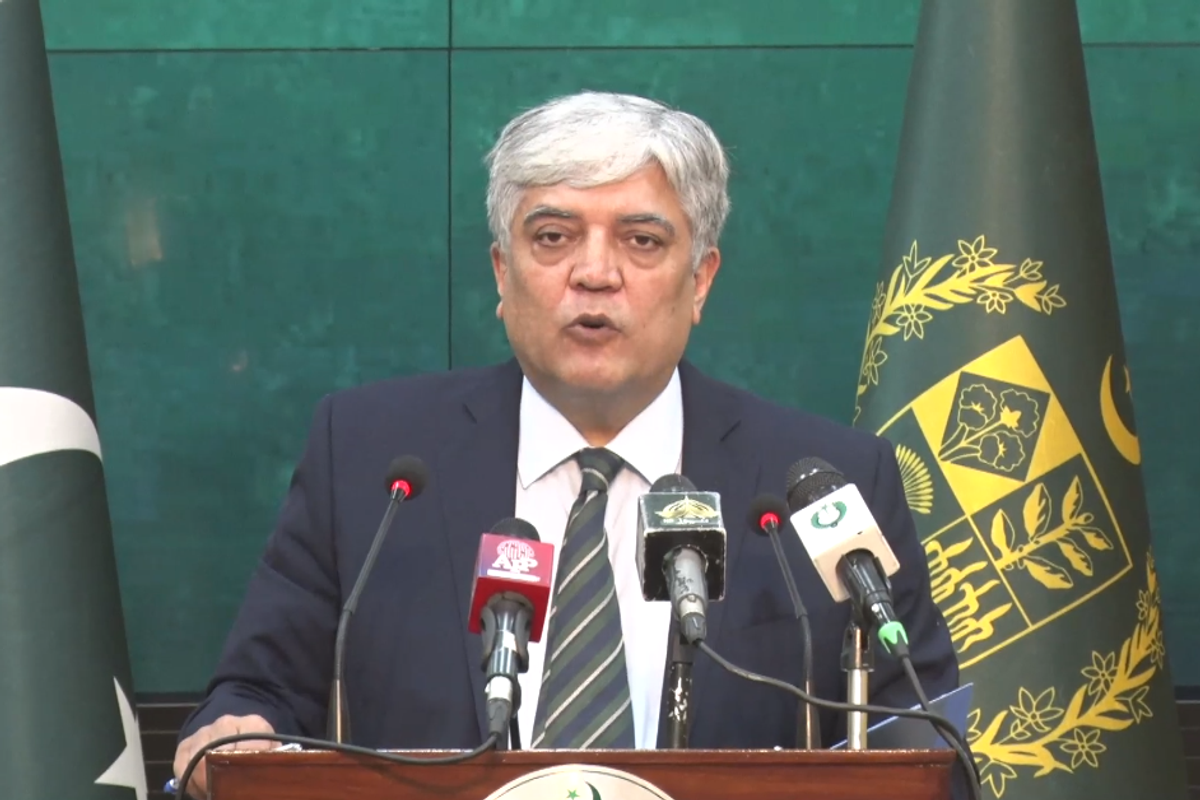Pakistan says Saudi defense pact is ‘defensive, not against any third country’
On whether the pact covers Pakistan-India hostilities, the FO said any such speculation of hypothetical scenarios is unwarranted
News Desk
The News Desk provides timely and factual coverage of national and international events, with an emphasis on accuracy and clarity.

Aamir Abbasi
Editor, Islamabad
Aamir; a journalist with 15 years of experience, working in Newspaper, TV and Digital Media. Worked in Field, covered Big Legal Constitutional and Political Events in Pakistan since 2009 with Pakistan’s Top Media Organizations. Graduate of Quaid I Azam University Islamabad.

Foreign Office spokesperson Shafqat Ali Khan speaks during a weekly press briefing in Islamabad on Friday.
Nukta
Pakistan has clarified that its newly signed defense pact with Saudi Arabia is “purely defensive in nature and not directed against any third country,” stressing that the agreement is aimed at strengthening bilateral security cooperation.
Foreign Office spokesperson Shafqat Ali Khan issued the statement on Friday during its weekly briefing, following questions about the scope of the pact and how it would be implemented.
On Wednesday, Prime Minister Shehbaz Sharif and Saudi Crown Prince Mohammed bin Salman signed the Strategic Mutual Defense Agreement in Riyadh - a landmark accord that commits both nations to treat any aggression against one as aggression against both.
The deal comes as Gulf Arab states reassess their security arrangements amid concerns about the long-term reliability of the United States as a guarantor.
“The agreement states that any aggression against either country shall be considered an aggression against both,” Pakistan’s Prime Minister’s Office said earlier this week.
Responding to queries on Friday, the FO spokesperson underlined that Pakistan and Saudi Arabia share a “long and distinguished history of brotherhood and cooperation,” calling their relationship “unique, enduring and multi-faceted.”
Defense ties, he noted, have been one of the “principal pillars” of bilateral relations since the 1960s.
“The Strategic Mutual Defense Agreement formalizes this decades-old and robust defense partnership,” the spokesperson said. “It is defensive in nature and not directed against any third country.”
He further stressed that the pact would “contribute to regional peace, security, and stability,” while both sides seek to enhance cooperation, build joint deterrence against threats, and work toward peace “in the region and beyond.”
Would pact cover India tensions?
When asked whether the agreement would apply in the event of future hostilities with India, the spokesperson declined to speculate.
“The statement issued by the two countries is self-explanatory, and I have provided the broader context. Any misplaced attribution or speculation of hypothetical scenarios is unwarranted,” he said.
A joint statement from Islamabad and Riyadh described the pact as a reflection of the “shared commitment of both nations to enhance their security and to achieve peace in the region and the world.”
Regional and global context
The FO also addressed questions on broader diplomatic ties. On the United States, the spokesperson highlighted Pakistan’s “longstanding and dense” partnership, encompassing trade, investment, diaspora ties, counterterrorism, and education. “It is an important relationship, and we remain invested in it,” he said.
Regarding Iran, he reiterated that Pakistan sees Tehran as a “close friend, partner, and brotherly country with centuries-old contacts” and continues to support diplomacy and regional de-escalation. He cautioned against reading too much into the timing of phone calls and meetings with US officials, saying Pakistan is not acting as a messenger.
Nuclear doctrine and strategic stability
Asked whether Pakistan’s nuclear doctrine was “India-specific,” the spokesperson said it remains an internal policy matter. “We have strategic stability dialogues with a number of countries where we exchange views, but our doctrine remains internal to us. Our position is well known, but I will not comment on the specificity of the doctrine,” he said.
He also confirmed that Pakistan did not send felicitations to Indian Prime Minister Modi on his recent birthday and reiterated concerns over India’s large-scale weapons procurement, which Islamabad views as destabilizing for the region. On questions regarding US exemptions for India over Chabahar Port or the impact of the Pakistan-Saudi pact on Gaza, he restricted his comments to official statements only.










Comments
See what people are discussing